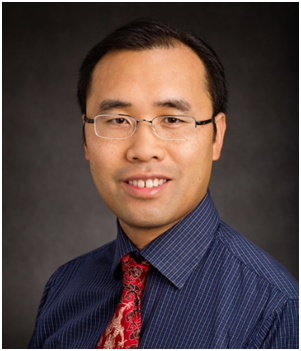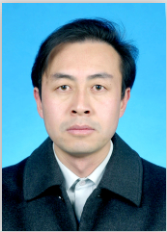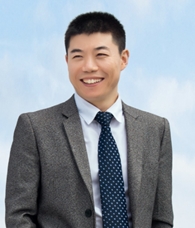ICIMT as
the workshop of CSAI, the registered author can listen to the keynote
and invited speeches together.

Prof. Tao Xie
Peking University, China
Foreign Member of Academia Europaea
Fellow of ACM, Fellow of IEEE, Fellow of AAAS, Fellow of CCF
Peking University Chair Professor
Tao Xie is a Peking University Chair Professor, a Deputy Director of the
Key Lab of High Confidence Software Technologies (PKU), Ministry of
Education, and the Deputy Secretary General of the Emerging Engineering
Development Committee of Peking University. He was a Full Professor at
the Department of Computer Science, the University of Illinois at
Urbana-Champaign (UIUC), USA. He is a Foreign Member of Academia
Europaea, a Fellow of ACM, IEEE, AAAS, and CCF. He won an Xplorer Prize,
NSFC Overseas Distinguished Young Scholar Award and its Extension
Category, NSF Faculty CAREER Award, ACM SIGSOFT Distinguished Service
Award, IEEE TCSE Distinguished Service Award, MSR Foundational
Contribution Award, TSE 2018 Best Paper Award, ASE 2021 Most Influential
Paper Award, etc. He serves as a Deputy Director of CCF TCSE, Chair of
CCF-IEEE CS Young Scientist Award Committee, Program Chair of China
National Computer Congress (CNCC 2020), Program Co-Chair of ICSE 2021,
Co-Editor-in-Chief of Wiley Journal of Software Testing, Verification
and Reliability (STVR), etc. His main research interests include
software engineering, system software, software security, trustworthy
AI.

Prof.Ninghui Li
Purdue University, USA
Fellow of ACM, Fellow of IEEE
Ninghui Li is a Samuel D. Conte Professor of Computer Science at Purdue
University. He received a Bachelor's degree from the University of
Science and Technology of China (USTC) in 1993, and a Ph.D. in Computer
Science from New York University in 2000. His research interests are in
security and privacy, and he has published over 200 referred papers in
these areas. His 2007 paper ``t-Closeness: Privacy Beyond k-Anonymity
and l-Diversity'' received the ICDE 2017 Influential Paper award.
He is Editor-in-Chief for ACM Transactions On Privacy and Security since
October 2020, and has served as Program Chair for several leading
conferences in the field, including ACM CCS, ESORICS, ACM ASIACCS, ACM
SACMAT, and IFIP TM. He served as Chair of ACM Special Interest Group on
Security, Audit and Control (SIGSAC) from 2017 to 2021, and Vice Chair
from 2013 to 2017. He is ACM Fellow and IEEE Fellow.
Prof. Li's research has been supported by multiple NSF grants, including
an NSF CAREER award in 2005. His research has also been supported by Air
Force Office of Scientific Research (AFOSR), Army Research Office (ARO),
National Security Agency (NSA), IBM Research, Google, and Samsung. He
collaborated with Dr. Bertino on NSF and AFOSR funded projects.

Prof. Chengwei Yang
Beijing Institute of Technology, China
Chengwei Yang is a professor, doctoral supervisor and Dean Assistant of
the School of Mechatronical Engineering of Beijing Institute of
Technology. He was jointly trained by Chinese Academy of Sciences and
McGill University of Canada during his doctoral degree. His main
research area is swarm Intelligent unmanned systems. He has published
more than 30 academic papers, been authorized 12 patents, completed 2
scientific and technological achievements, and published 1 academic
monograph. Now he is the member of the Swarm Intelligence and
Collaborative Control Professional Committee of the China Command and
Control Society and a standing member of the Youth Work Committee. He is
also a reviewer of the National Natural Science Foundation and has
participated in the demonstration work of several national major key
projects. He presides over a number of National Natural Science Fund
projects, national special major sub-projects, pre-research projects and
some other fund projects.

Prof. XiWen Zhang
Beijing Language and Culture University, China
XiWen Zhang is currently a Professor of
Digital Media Department, School of Information Science, in the Beijing
Language and Culture University.
Prof. Zhang worked as an associated professor from 2002 to 2007
at the Human-computer interaction Laboratory, Institute of Software,
Chinese Academy of Sciences. From 2005 to 2006 he was a Post doctor
advised by Prof. Michael R. Lyu in the Department of Computer Science
and Engineering, the Chinese University of Hong Kong. From February to
April in 2001 he was a Research Assistant by Dr. KeZhang Chen in the
Department of Mechanical Engineering, the University of Hong Kong. From
2000 to 2002 he was a Post doctor advised by Prof. ShiJie Cai in the
Computer Science and Technology department, Nanjing University.
Prof. Zhang 's research interests include pattern recognition,
computer vision, and human-computer interaction, as well as their
applications in digital image, digital video, and digital ink. Prof.
Zhang has published over 60 refereed journal and conference papers in
his research areas. His SCI papers are published in Pattern Recognition,
IEEE Transactions on Systems, Man, and Cybernetics - Part B:
Cybernetics, Computer-Aided Design. He has published more than twenty EI
paper.
Prof. Zhang received his B.E. in Chemical equipment and machinery
from Fushun Petroleum Institute (became Liaoning Shihua University since
2002) in 1995, and his Ph.D. advised by Prof. ZongYing Ou in Mechanical
manufacturing and automation from Dalian University of Technology in
2000.

Prof. Weishan Zhang
China University of Petroleum (East China), China
Weishan Zhang, professor of China University of Petroleum (East China).
His main research directions are big data intelligent processing,
artificial intelligence, etc. He is the head of the intelligent big data
processing team of Huangdao District. He initiated the West Coast
Artificial Intelligence Technology Innovation Center in 2019. He has
published more than 60 SCI articles and more than 80 international
conference papers. Currently H index is 25, i10 index is 65. He is the
PI/Co-PI of a number of projects such as the National Natural Science
Foundation of China and the National Key R&D Program. For his research
on federated intelligence, he won the second prize of Shandong Province
Science and Technology Progress Award, the third prize of Wu Wenjun
Artificial Intelligence Science and Technology Progress Award and some
other awards.

Prof. Hongwei Mo
Harbin Engineering University, China
Mo Hongwei is a professor, doctoral supervisor, and director of the
Brain-inspired Computing and Artificial Intelligence Research Center at
the School of Intelligent Science and Engineering, Harbin Engineering
University. Director of Heilongjiang Provincial Key Laboratory of
Multidisciplinary Cognitive Cognitive Artificial Intelligence Technology
and Application. Deputy Director of the Natural Computing and Digital
Intelligence City Special Committee of the Chinese Artificial
Intelligence Society, Standing Committee Member of the Aerospace
Intelligence System Special Committee of the Chinese Artificial
Intelligence Society, and member of the Intelligence Medical Special
Committee of the Chinese Artificial Intelligence Society. Expert
Committee of Brain-like Computing of Chinese Society of Neuroscience. He
undertook and completed 26 projects of the National Natural Science
Foundation of China, the National Defense Pre-research, the New
Generation Artificial Intelligence 2030 Major Project of the Ministry of
Science and Technology, and the Heilongjiang Provincial Key R&D Program
Artificial Intelligence Special Project, published more than 90 papers,
and published 6 monographs, "Artificial Intelligence". 4 textbooks
including "Introduction", and 10 authorized invention patents. Received
4 provincial and ministerial level science and technology awards. Author
of Outstanding Papers in "Journal of Intelligent Systems" in 2021. He is
the co-chair of the 2013 International Conference on Swarm Intelligence,
the co-chair of the 2017 International Conference on Biologically
Inspired Computation Theory and Applications (BICTA2017), and the
chairman of the organizing committees and program committee members of
more than 40 international conferences. He is on the editorial board of
many international and domestic journals such as Chinese Journal of
Electronics.

Assoc. Prof. Xinming Zhang
Harbin Institute of Technology, China
Zhang Xinming, associate professor, doctoral supervisor. In September
2006, he obtained a PhD in Science and Technology of Harbin Institute of
Technology. 2006.10-2008.10 was engaged in post-doctoral research at
Harbin Institute of Technology Shenzhen Graduate School, and has joined
Harbin Institute of Technology (Shenzhen) to this day in 2008.10.
2016.8-2017.8 as a visiting scholar at Michigan State University
(Michigan State University). As a host, 7 items of scientific research
projects, including the National Natural Science Foundation (Youth
Fund), Chinese Postdoctoral Fund, Guangdong Natural Science Foundation
Scientific research projects, as the main participants participating in
the four scientific research projects, including the National Natural
Science Foundation of China, have published more than 50 related papers
in important academic journals at home and abroad, including more than
30 SCI retrieval.

Assoc. Prof. Lei Zhang
Tianjin University, China
Lei Zhang received her Ph.D. degree in Computer Science from Auburn
University (Auburn, AL, USA) in 2008. She worked as an assistant
professor from 2008-2011 in the Computer Science Dept. at Frostburg
State University (Frostburg, MD, USA); She is now an associate professor
in College of Intelligence and Computing at Tianjin University (Tianjin,
P.R. China), where she is a member of Tianjin Key Laboratory of Advanced
Network Technology and Application. Her research interests include
mobile computing, computer networks, data mining. She is a member of the
ACM and IEEE.

Assoc. Prof. Shuang Lai
Northwestern Polytechnical University, China
Shuang Lai received his Ph.D. in Control Science and Engineering from
Northwestern Polytechnical University in 2009 and was a visiting scholar
at the University of Technology Sydney, Australia. He is currently an
associate professor at the School of Public Policy and Administration,
Northwestern Polytechnical University. He has presided over and
participated in several national, provincial, and ministerial scientific
research projects, and has published many academic papers in domestic
and foreign academic conferences and various journals. His main research
interests are network information security, e-commerce, e-government,
and emergency management. He is dedicated to applying computer-related
technologies to the field of public administration.

Zhuowei Wang
University of Technology Sydney, Australia
Dr Zhuowei Wang is with the Australian Artificial Intelligence Institute
(AAII), Faculty of Engineering and Information Technology, University of
Technology Sydney. He received his Ph.D. degree in Computer Science from
University of Technology Sydney (2018-2022) and his bachelor's degree
from South China University of Technology (2013-2017). His research
interest focuses on noisy label learning, federated learning, and weakly
supervised learning. He has served as Editorial Manage of Expert Systems
with Applications and Technical Committee of BDAI and WSPML. He has
served as a member of program committees of CVPR, ICML, ECCV, and KDD.
More speakers will be added soon...